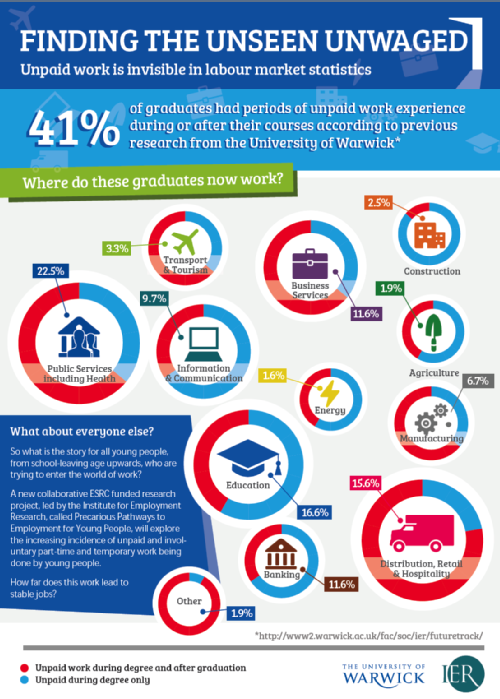Project news
New appointment to ESRC-funded project
 We are delighted to announce the appointment of Dr Charoula Tzanakou as Research Fellow on the ESRC-funded Precarious Pathways to Employment of Young People. Dr Tzanakou originally studied for an undergraduate degree in International European Studies at the Athens University of Business and Economics, followed immediately by an MA in European Institutions and Policymaking at Lancaster University. During her time there, she was selected by the European University Association to be a trainee and towards the end of her period of internship in Brussels, was offered a job as Project Officer. She then returned to academia as a PhD student at the Institute, supervised by Professors Kate Purcell and Robert Lindley, comparing the early career experiences of Greek PhD students in Natural Sciences and Engineering who had studied for their doctorates in UK and Greek universities, graduating in April 2012.
We are delighted to announce the appointment of Dr Charoula Tzanakou as Research Fellow on the ESRC-funded Precarious Pathways to Employment of Young People. Dr Tzanakou originally studied for an undergraduate degree in International European Studies at the Athens University of Business and Economics, followed immediately by an MA in European Institutions and Policymaking at Lancaster University. During her time there, she was selected by the European University Association to be a trainee and towards the end of her period of internship in Brussels, was offered a job as Project Officer. She then returned to academia as a PhD student at the Institute, supervised by Professors Kate Purcell and Robert Lindley, comparing the early career experiences of Greek PhD students in Natural Sciences and Engineering who had studied for their doctorates in UK and Greek universities, graduating in April 2012.
Since graduating, she has worked on as a part-time researcher at the Skills, Knowledge and Organisational Performance (SKOPE) Research Centre at the University of Oxford, the IER and, in September 2013, was appointed as Research Fellow to work with Professor Alison Rodger, Professor of Biophysical Chemistry and Director of the MOAC Doctoral Training Centre in the Faculty of Analytical Sciences, as the co-ordinator and full-time researcher of a small ESRC-funded project on the under-representation and low retention of women in academic science careers.
IER and the project team look forward to welcoming Charoula in July.
Unpaid work could soon be the norm for all young jobseekers
Employment researchers predict unpaid work could soon become the norm for all young people trying to enter the job market.
A team of researchers from the universities of Warwick, Leicester, Aston and the Open University are about to start a large-scale project to look at the often ‘unstable and fragmented’ experiences of young people as they begin their careers.
Previous studies from the University of Warwick revealed that 41% of graduates had taken on unpaid work experience during their course and after graduation. The public sector was shown to have the highest number of students and graduates who had done unpaid work (see Futuretrack).

The new project, Precarious Pathways to Employment for Young People, will examine the experiences of all young people, not just graduates, from school leaving age upwards. The project is sponsored by the Economic and Social Research Council.
Project leader Professor Kate Purcell, from the University of Warwick’s Institute for Employment Research, said: “For increasing numbers of young people in the UK, the pathways into employment to work are unstable and fragmented. As employers demand evidence of 'employability skills', work placements and internships have become an integral part of secondary and higher education, and of early labour market experience.
“Unpaid, temporary and part-time work may soon become the norm for all young people as they start on their chosen career paths. Much of this activity is unrecorded in employment statistics. The increased early labour market experience of (often involuntary) temporary or part-time work that provides experience of employment but does not provide a living wage for young job-seekers, adds to the precarious picture of current youth access to opportunity.”
The Precarious Pathways to Employment project will have four interlinked strands looking primarily at the areas of Coventry, Birmingham and Leicester, together with a broader analysis of employment trends and unwaged work in the UK.
